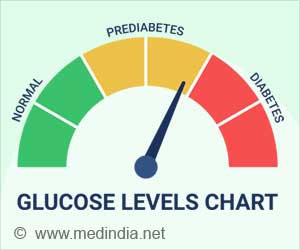An evening person with type 2 diabetes who has late breakfast might have a higher Body Mass Index (BMI), which can eventually lead to overweight and obesity, reveals a new study.

- Being an evening person is linked to higher body mass index (BMI)
- Having late breakfast may increase Body Mass Index (BMI) leading to overweight and obesity
- Being a morning person can lower BMI and reduce risk of overweight and obesity
TOP INSIGHT
Having late breakfast is a major risk factor that is associated with a higher BMI among people with Type 2 diabetes. However, eating breakfast early can help reduce the risk.
The research study was led by Dr. Sirimon Reutrakul, associate professor of endocrinology, diabetes and metabolism in the University of Illinois at Chicago College of Medicine and her team.
Who is at Risk for Obesity? A Morning or Evening Person?
The research team wanted to investigate as to who was associated with an increased risk for higher BMI- whether a morning or evening preference people with Type 2 diabetes and what factors contributed to the increased risk.
Reutrakul and her colleagues recruited around 210 non-shift workers who had Type 2 diabetes and were living in Thailand.
The scores range from 13 to 55, indicating extreme evening preference and the later indicating extreme morning preference.
Self-report and questionnaire measured sleep duration and quality of sleep. They were then interviewed about their meal timings, and daily caloric intake was determined by self-reported one-day food recalls.
On an average, self-reported sleep duration was about 5.5 hours/night and participants consumed around 1,103 kcal/day.
Various Factors linked to Obesity Risk
All participants were found to be overweight, as their average BMI was 28.4 kg/m2. Also, about 97 of them had evening preference, and 113 had morning preference.
Participants with evening preference ate breakfast between 7:30 a.m. and 9 a.m, while those with morning preference ate between 7 a.m. and 8:30 a.m.
The mealtime for participants with morning preference was found to be much earlier when compared with the meal timing of participants with evening preference, which includes breakfast, lunch, dinner and the last meal.
The research team observed that having more evening preference was linked to higher BMI. However, higher BMI was not linked to caloric intake, lunch and dinner times.
Also, morning preference was associated with earlier breakfast time and lower BMI by 0.37 kg/m2.
"Later breakfast time is a novel risk factor associated with a higher BMI among people with Type 2 diabetes. It remains to be investigated if eating breakfast earlier will help with body weight in this population," said Reutrakul.
Reutrakul speculates that eating a late dinner can alter the internal biological clock that plays a key role in circadian regulation.
Previous studies show that circadian misalignment can lead to dysregulation of energy metabolism.
Obesity and Diabetes Mellitus
A person is said to be overweight or obese when their weight is greater than what's considered healthy for the height.
Overweight is when the Body Mass Index (BMI) is >25, and a person is said to be obese when the BMI is >30. Obesity is a threat not only for adults but also for children and adolescents.
- Globally, about 2.7 billion adults are likely to suffer from overweight and obesity by 2025
- One in three adult population is overweight, and one in 10 is found to be obese
- Globally, obesity is the fifth leading cause of deaths
- India is second only to China in diabetes prevalence
- In 2011, about 61.3 million people in India were found to have diabetes, which is expected to 101.2 million by 2030, according to the International Diabetes Federation
Source-Medindia
 MEDINDIA
MEDINDIA




 Email
Email










